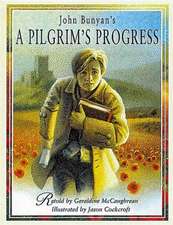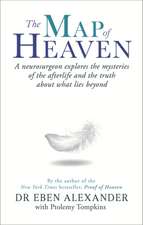The Pilgrim's Progress & the Lives of Donne and Herbert
Autor John Bunyan, Izaak Walton Editat de Charles W. Elioten Limba Engleză Paperback – 25 ian 2010
| Toate formatele și edițiile | Preț | Express |
|---|---|---|
| Paperback (1) | 170.59 lei 6-8 săpt. | |
| COSIMO CLASSICS – 25 ian 2010 | 170.59 lei 6-8 săpt. | |
| Hardback (1) | 259.01 lei 6-8 săpt. | |
| COSIMO CLASSICS – 25 ian 2010 | 259.01 lei 6-8 săpt. |
Preț: 170.59 lei
Nou
Puncte Express: 256
Preț estimativ în valută:
32.65€ • 33.96$ • 26.95£
32.65€ • 33.96$ • 26.95£
Carte tipărită la comandă
Livrare economică 14-28 aprilie
Preluare comenzi: 021 569.72.76
Specificații
ISBN-13: 9781616401337
ISBN-10: 1616401338
Pagini: 430
Dimensiuni: 140 x 216 x 24 mm
Greutate: 0.54 kg
Editura: COSIMO CLASSICS
ISBN-10: 1616401338
Pagini: 430
Dimensiuni: 140 x 216 x 24 mm
Greutate: 0.54 kg
Editura: COSIMO CLASSICS
Notă biografică
John Bunyan was born in Bedfordshire, England, in 1628. A non-conformist writer and preacher, his quest for spiritual enlightenment brought him into constant conflict with the state and the clergy. He began to write The Pilgrim's Progress while in prison: it would go on to become one of the most famous allegories ever written, second only to the Bible amongst Christian texts.











